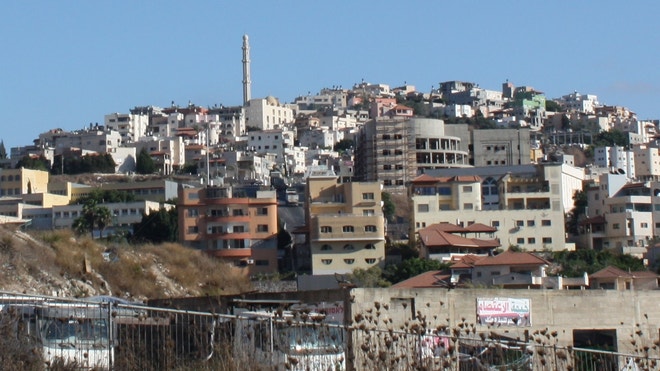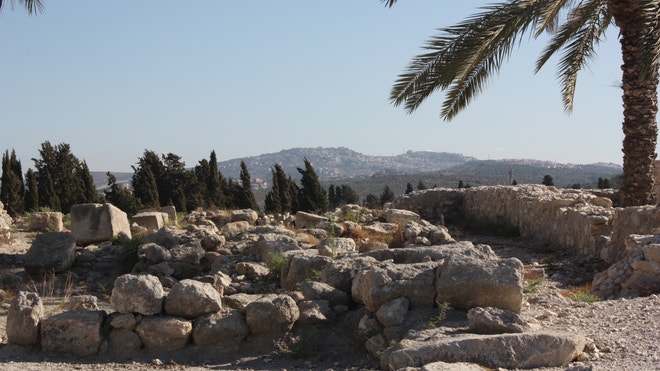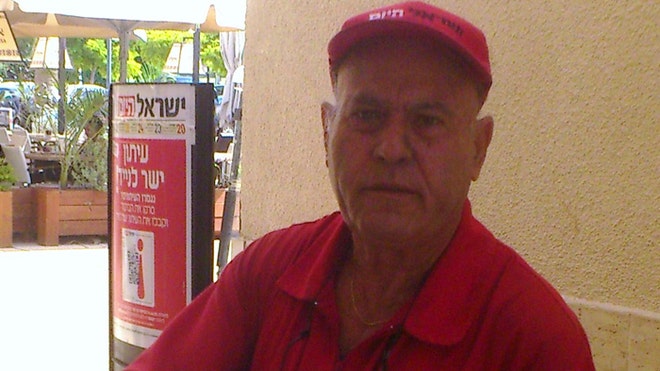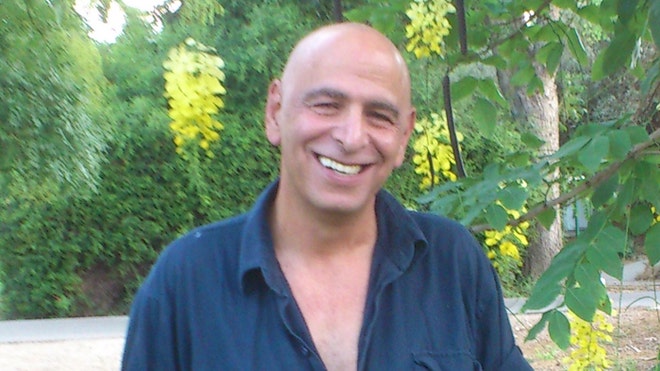August 27: And now Egypt allows Irananian battle ship to pass through the Suez Canal . . .
after the U.S. sent a special request to refuse the ship passage.
Taking the pulse of Armageddon as Israel-Iran showdown looms
Published August 25, 2012
FoxNews.com
HAIFA, Israel – It is just an 18-mile journey from Israeli Prime Minister Benjamin Netanyahu’s private residence in luxurious Caesarea on the shores of the Mediterranean, to Har Megiddo - Armageddon, the hilltop ancient ruins of one of King Solomon’s palaces from where the Bible suggests the final battle between good and evil will be viewed.
The road between the two points is populated by Israeli Jews and Arabs of widely differing religious beliefs and political opinions, and the No. 1 topic of conversation these days is whether Israel should bomb Iranian nuclear facilities. The people who live in the small, picturesque villages along the route recently talked to FoxNews.com about the looming showdown.
A man who identified himself as Mordechai, who was giving away copies of a free newspaper outside local shops in Caesarea, said he fears the seemingly inevitable confrontation.
“I’m frightened” Mordechai said. “I don’t think we should attack Iran; it will start another world war. It’s also a big mistake to be talking about it here in the media.”
Haya, a well-dressed elderly lady, took a paper from him and offered a different view. “I’m happy with Bibi,” she said. “He won’t make the decision alone. He’ll listen to his advisors then he’ll do what he has to do.”
Route 65 is the "Road to Armageddon," and a few miles east of Caesarea, it passes Kibbutz En Shemer, where Itti Moshiach, (his surname appropriately enough means Messiah), a former tank gunner who fought in the 1973 Yom Kippur War, offered his opinion.
“He (Netanyahu) should resign," Moshiach said. "I know he doesn’t want peace; the price is too heavy for him. He doesn’t want to give back the West Bank. As for Iran, they won’t use the bomb against us because they know full well our retaliation would be 100 times worse. We hear the government complaining that there is too much talk about this, but most of the talk comes from the government.”
Yehuda Zarka knows this part of the country as well as anyone. He is the base commander for the Border Police and famously foiled a Palestinian bomb plot in 2002 when he intercepted a half-ton bomb being delivered to a target in a local Jewish town. He was commended for his bravery by then Prime Minister Ariel Sharon and by the current Israeli president, Shimon Peres.
“The people of the Middle East only understand strong leaders, and Bibi isn’t a strong leader," Zarka said. "He talks too much and does nothing. (Menachem) Begin hit Saddam in 1981, and (Ehud) Olmert took out the Syrian facility in 2007 without any prior public discussion. If Bibi had shown years ago – the moment the first missiles hit Israel from Gaza and Lebanon – that he would respond with real force, the Iranians wouldn’t have dared risk putting Israel in this position.”
Just a short drive down the road, in the Arab village of Baqa-Al-Gharbieh, few people were prepared to speak their mind. ‘Eid’, a shopkeeper, gave an insight into local Arab opinion.
“If he (Netanyahu) attacks Iran it will be a very big mistake," Eid said. "The Jewish people don’t want to face facts. If the Palestinian problem was solved, Iran would have no reason or support to threaten Israel. We (Arabs) want peace. In life it is give and take, not like the Israelis, who take and take.”
At a gas station in another Arab town of Umm El Fahm, Samir bemoaned what war could do the already high cost of a gallon of gas. “If Netanyahu starts a war, $8 will seem cheap!” he observes. “It would be an economic disaster.”
Finally, in Har Megiddo, the view unfolds of the Jezreel Valley, where the final battle is forecast to take place. On the left side of the valley is Nazareth, while on the right – on the other side of the separation fence - is the Palestinian city of Jenin, which proudly proclaims itself the "martyr’s capital." The name reflects the city's having dispatched more suicide bombers into Israel than any other Palestinian town.
In the souvenir shop ‘Maya’ and ‘David’ (not their real names), gave the perspective of 30-something Israeli Jews.
“I believe Iran is close to getting the bomb," David said. "Israel must not allow another Holocaust to happen. We must act first."
Maya agreed: “I do” she said. “We must be sure though to bomb Iranian military targets and not civilian areas. And we must do it soon; before it’s too late.”
Paul Alster is an Israel-based broadcast journalist who blogs at www.paulalster.com and can be followed on Twitter @paulalster.
and can be followed on Twitter @paulalster.
The road between the two points is populated by Israeli Jews and Arabs of widely differing religious beliefs and political opinions, and the No. 1 topic of conversation these days is whether Israel should bomb Iranian nuclear facilities. The people who live in the small, picturesque villages along the route recently talked to FoxNews.com about the looming showdown.
"Israel must not allow another Holocaust to happen. We must act first."- David, in the Israeli city of Har Megiddo, or 'Armageddon'
A man who identified himself as Mordechai, who was giving away copies of a free newspaper outside local shops in Caesarea, said he fears the seemingly inevitable confrontation.
“I’m frightened” Mordechai said. “I don’t think we should attack Iran; it will start another world war. It’s also a big mistake to be talking about it here in the media.”
Haya, a well-dressed elderly lady, took a paper from him and offered a different view. “I’m happy with Bibi,” she said. “He won’t make the decision alone. He’ll listen to his advisors then he’ll do what he has to do.”
Route 65 is the "Road to Armageddon," and a few miles east of Caesarea, it passes Kibbutz En Shemer, where Itti Moshiach, (his surname appropriately enough means Messiah), a former tank gunner who fought in the 1973 Yom Kippur War, offered his opinion.
“He (Netanyahu) should resign," Moshiach said. "I know he doesn’t want peace; the price is too heavy for him. He doesn’t want to give back the West Bank. As for Iran, they won’t use the bomb against us because they know full well our retaliation would be 100 times worse. We hear the government complaining that there is too much talk about this, but most of the talk comes from the government.”
Yehuda Zarka knows this part of the country as well as anyone. He is the base commander for the Border Police and famously foiled a Palestinian bomb plot in 2002 when he intercepted a half-ton bomb being delivered to a target in a local Jewish town. He was commended for his bravery by then Prime Minister Ariel Sharon and by the current Israeli president, Shimon Peres.
“The people of the Middle East only understand strong leaders, and Bibi isn’t a strong leader," Zarka said. "He talks too much and does nothing. (Menachem) Begin hit Saddam in 1981, and (Ehud) Olmert took out the Syrian facility in 2007 without any prior public discussion. If Bibi had shown years ago – the moment the first missiles hit Israel from Gaza and Lebanon – that he would respond with real force, the Iranians wouldn’t have dared risk putting Israel in this position.”
Just a short drive down the road, in the Arab village of Baqa-Al-Gharbieh, few people were prepared to speak their mind. ‘Eid’, a shopkeeper, gave an insight into local Arab opinion.
“If he (Netanyahu) attacks Iran it will be a very big mistake," Eid said. "The Jewish people don’t want to face facts. If the Palestinian problem was solved, Iran would have no reason or support to threaten Israel. We (Arabs) want peace. In life it is give and take, not like the Israelis, who take and take.”
At a gas station in another Arab town of Umm El Fahm, Samir bemoaned what war could do the already high cost of a gallon of gas. “If Netanyahu starts a war, $8 will seem cheap!” he observes. “It would be an economic disaster.”
Finally, in Har Megiddo, the view unfolds of the Jezreel Valley, where the final battle is forecast to take place. On the left side of the valley is Nazareth, while on the right – on the other side of the separation fence - is the Palestinian city of Jenin, which proudly proclaims itself the "martyr’s capital." The name reflects the city's having dispatched more suicide bombers into Israel than any other Palestinian town.
In the souvenir shop ‘Maya’ and ‘David’ (not their real names), gave the perspective of 30-something Israeli Jews.
“I believe Iran is close to getting the bomb," David said. "Israel must not allow another Holocaust to happen. We must act first."
Maya agreed: “I do” she said. “We must be sure though to bomb Iranian military targets and not civilian areas. And we must do it soon; before it’s too late.”
Paul Alster is an Israel-based broadcast journalist who blogs at www.paulalster.com
 and can be followed on Twitter @paulalster.
and can be followed on Twitter @paulalster.Read more: http://www.foxnews.com/world/2012/08/25/taking-pulse-armageddon-as-israel-iran-showdown-looms/?utm_source=feedburner&utm_medium=feed&utm_campaign=Feed%3A+foxnews%2Fworld+%28Internal+-+World+Latest+-+Text%29&utm_content=Google+Reader#ixzz24kwnlt9P






